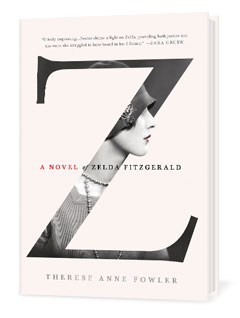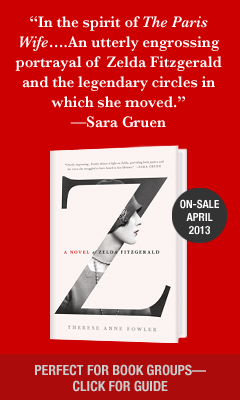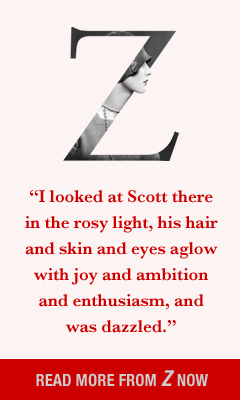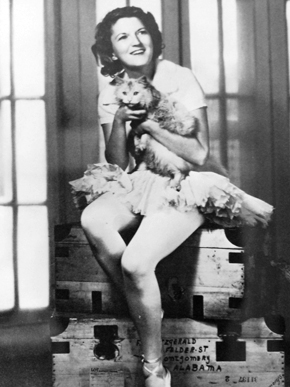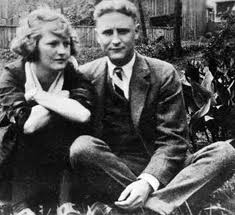Z: A Novel of Zelda Fitzgerald
by Therese Anne Fowler
It's a tricky business to write a novel that is strongly biographical when it is about a person who, now deceased, was once much in the public eye. Therese Fowler has pulled it off--and then some. She has brought Zelda Sayre to her readers in living color. Fowler's style is as flawless as Zelda's always was; they are the perfect match.
Zelda Sayre was a 17-year-old Montgomery, Ala., belle when she met F. Scott Fitzgerald at a dance. They were from different worlds: he a Yankee and not a rich boy, despite graduating from Princeton; she quite the opposite. She was smitten, as was he, but ultimately sent him away to get his novel published (and make some money), only to call him back some time later and agree to marry him. (Scott later mined one of his all-time great lines from this contretemps. At the end of his story, "The Sensible Thing," he writes: "Well, let it pass, he thought; April is over, April is over. There are all kinds of love in the world, but never the same love twice.") They left for New York and began a life of excess in every department: romance, glamour and tragedy.
Scott called Zelda "The First Flapper," always meant as a compliment, for her avant-garde attitude toward fashion and behavior. While other women were corseted and very buttoned down, Zelda wore loose, ankle-revealing dresses, bobbed hair, ropes of rhinestones and usually had a cigarette in one hand and a drink in the other. She was a madcap girl, ready for anything and alive with the possibilities that life held for her and Scott.
Their lives were glamorous by any standard: lavish parties among the literati, travel to Paris, welcomed and feted everywhere as the Golden Couple, and somehow finding just enough money to keep it all together. Scott wrote for the "slicks" to keep them relatively solvent, but was always working, more or less, on the next novel--the one that would make him famous and bring in all the money they needed.
Meanwhile, Zelda followed along, occasionally asserting her own need for self-expression by writing, dancing or painting. She had a lifelong need to find her artistic niche and, living with Scott, was thwarted at every turn. When she wrote really good short stories, Scott had them published under his name, not hers, because his name would guarantee publication as well as money. Of course, his agent and publisher were complicit in this. It seems impossible today to contemplate such artistic fraud, but, although it chafed, Zelda went along. She enjoyed what money could buy, so sacrificed her artistic integrity for more and more of the good life.
What eventually undid them was not Zelda's longing for recognition; it was Scott's out-of-control drinking. He was disorderly, occasionally arrested, unable to work for any significant amount of time, indifferent to Zelda, an unreliable father to their only child, Scottie--but drinking won out over all. With help from a nanny and a maid most of the time, Zelda was never overburdened with matters domestic, but she felt lonely and neglected. The streak of mental instability in her family found its way to Zelda; she spent periodic stretches in various institutions. By today's psychiatric lights, she was woefully misdiagnosed and overmedicated.
Zelda held Ernest Hemingway in special contempt; no one really knows why but Fowler concocts an entirely plausible scenario. Fitzgerald worshipped Ernest, mostly for his writing but also for his macho façade. Zelda always found him "slightly off" and she was right in the end.
Both Zelda and Scott met untimely and tragic ends: Scott died of a heart attack at 44 and Zelda was burned to death in a nursing home fire at 47. She had been at a dance that evening, so was not incarcerated in some locked-down fortress. She was no doubt heavily sedated and died in her sleep. At least, we would like to think so.
Therese Anne Fowler has written a heartfelt novel about a woman out of her time, a woman whose talents were unsung, and she has brought a new understanding to a story we thought we knew. --Valerie Ryan, Cannon Beach Book Company, Ore.



